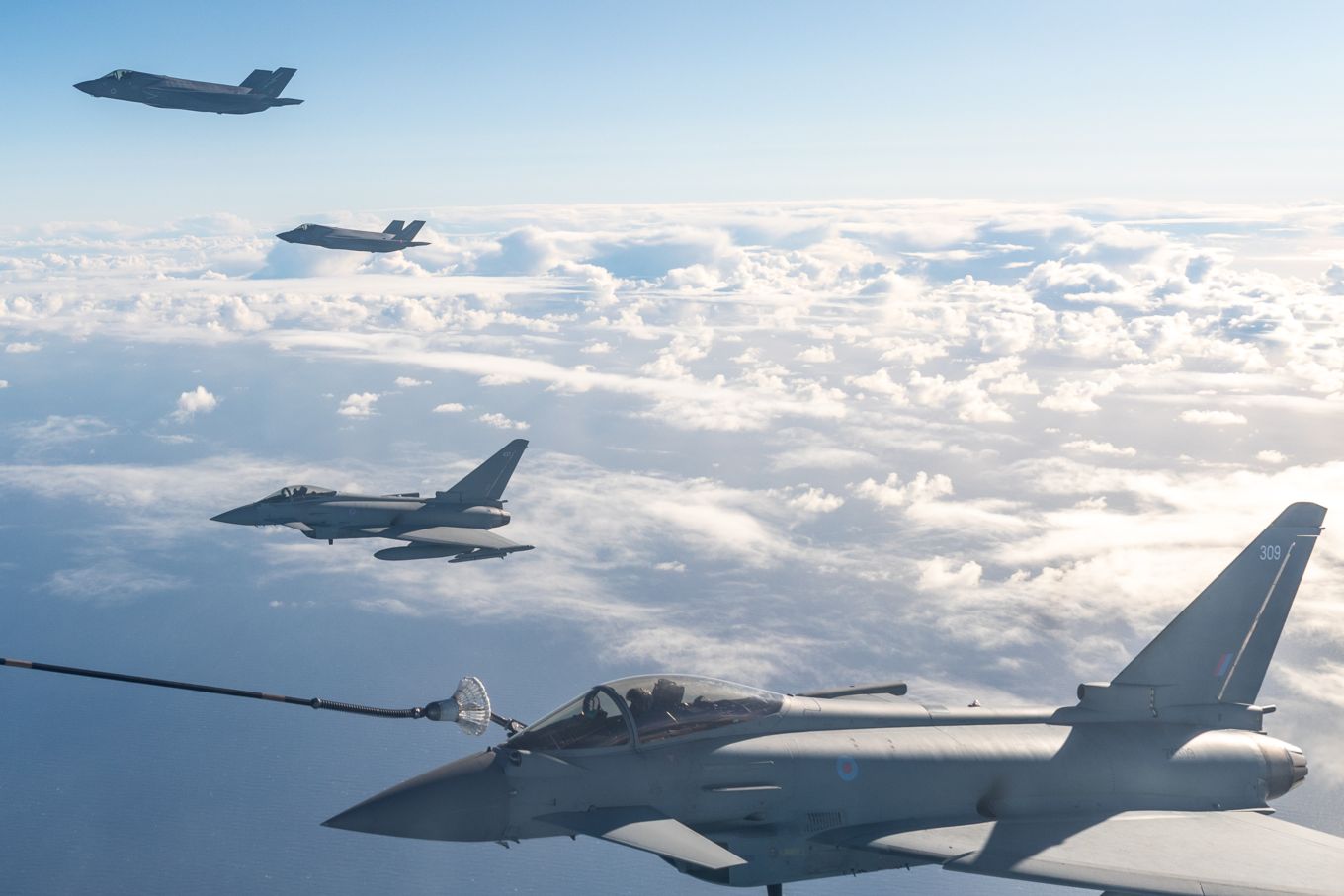The largest military exercise to be run by the Royal Air Force in the UK for many years has finished after three weeks of complex air activities. The Exercise, called Exercise Crimson Warrior, involved personnel and aircraft from the Royal Air Force as well as the Royal Navy, British Army, United States Marine Corps and United States Air Force. Exercise Crimson Warrior is a development of the regular Cobra Warrior exercises with the addition of missions to support the work up of F-35B Lightnings and helicopters that will form the Carrier Strike Group Air Wing during next year’s operational deployment of HMS Queen Elizabeth.

Incorporating large scale tactical training, the Exercise began on 19th October and involved over 70 aircraft completing a range of missions. The Exercise also marked the end of the long and demanding Qualified Weapons Instructor Courses (QWIC), which train selected personnel to be expert practitioners in their individual warfare speciality or aircraft. The Typhoon is known as a swing role aircraft; this means pilots must be ready to switch from the air-to-air role to the air-to-ground role during a mission. As future tactics instructors the QWIC students have been tested in both roles in the same mission, with pilots engaging hostile aircraft as they approached their target area; then defending against enemy surface-to-air missiless.

The inclusion of the F-35B into Exercise Crimson Warrior challenged and tested the UK Lightning Force and their USMC counterparts in a complex air environment, exploiting the capabilities of the advanced 5th generation aircraft. In addition to the fast jets, the Exercise incorporated a huge number or aircraft conducting Qualified Multi-engine Tactics Instructors, QWI Intelligence, Surveillance and Reconnaissance and Qualified Space Instructors Courses. Flying out of RAF Brize Norton, Voyager aircraft conducted routine Air-to-Air Refuelling (AAR) sorties extending the reach of each mission and providing a vital battle planning consideration.

A key part of Exercise Crimson Warrior was to test Joint Personnel Recovery (JPR). Throughout the Exercise RAF Regiment Gunners from 3 Force Protection Wing and 15 Squadron RAF Regiment as part of the Ground Extraction Force (GEF) have trained teams, practicing their skills in Joint Personnel Recovery, working alongside the Chinook Force to react to both deliberate and dynamic “downed aircrew” scenarios. The RAF Regiment was tested against the 5 phases of JPR (Report, Locate, Support, Recover and Re-integrate) whilst being fully integrated into the complex Air / Land environment, including Joint Terminal Attack Controllers and small Unmanned Air Systems to achieve their mission.

During AAR, fuel is taken from the Voyager aircraft’s standard wing and fuselage tanks. The Voyager has the ability to operate a ‘towline’, where they orbit in a prescribed “safe” area waiting out of range of enemy aircraft for “receivers”, or in a ‘trail’.As well as supporting JPR serials, Joint Helicopter Command provided a formidable rotary package to the Exercise, combining both land and maritime training scenarios. The congested air picture tested training tactics and procedures of its aircrew across the third week of Exercise Crimson Warrior where a combination of Royal Navy Wildcat and Merlin were joined by RAF Chinook and Puma at RAF Leeming in the first wave of close cooperation.













